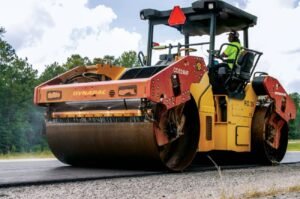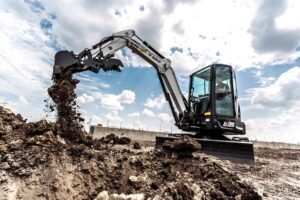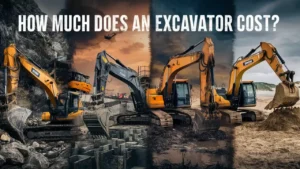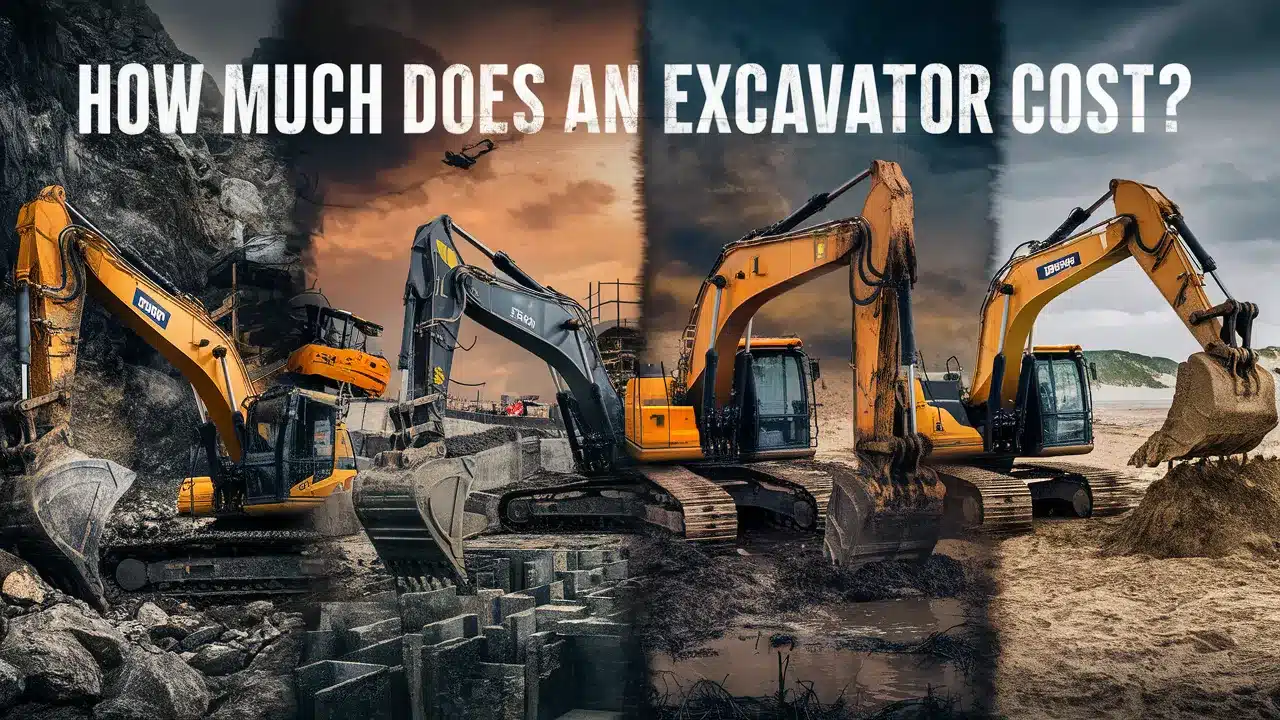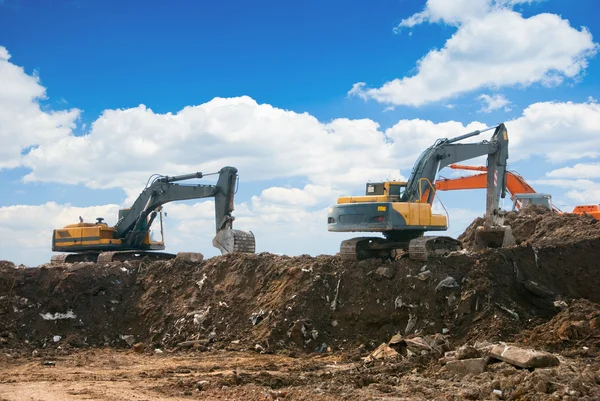Buying a used wheel loader is a big decision and can be a big investment, especially if you’re a business looking to improve efficiency and control costs. There are many different brands, models, conditions, and prices out there. If you need to purchase a used wheel loader as a construction company to improve your fleet, or if you’re an individual looking for a reliable loader, you need to know how to find a good one at a good price. This guide will give you all the information you need to know to make an educated decision when buying a used wheel loader.
To secure a high-quality, low-priced used wheel loader, first, assess your operational requirements regarding size and capacity. Conduct thorough research on the loader’s history, including maintenance records and previous usage. Engage with reputable suppliers, perform comprehensive inspections, and consider financing options to make the most informed choice. By following these steps, you can confidently purchase a machine that meets your needs without exceeding your budget.
Let’s talk about how to buy the right used wheel loader for you.

Table of Contents
Toggle1. What Are the Advantages of Used Wheel Loaders?
There are many reasons why a used wheel loader can help you save money and improve your equipment situation:
Cost Savings
The most significant reason to consider buying a used wheel loader is cost! New ones can be expensive, especially for a new (or even small to medium-sized) business. Buying a used loader can free up capital for other things like hiring skilled labor, purchasing a computer software system, or other necessary business expenses.
Lower Depreciation
The minute you drive a new loader off the lot, it starts losing value. It’s not uncommon for a new wheel loader to depreciate 20% or more of its value in the first year. Used loaders, however, have already gone through most of that initial steep depreciation and typically hold their value pretty well.
Diverse Selection
The used equipment market is full of all sizes, makes, and models of loaders, so you have a ton of options. Whether you need a small, compact loader to fit in tight spaces or a large wheel loader for heavy material, you’ll probably find what you need in the used market.
Immediate Availability
Unlike new loaders, which you might have to wait for months to get, used ones are ready to buy right now. This is particularly beneficial if you’re under the gun on a project and don’t have time to wait for a new loader to show up.
Access to Advanced Features
Many of the used wheel loaders available are updated with the latest and greatest technology. What used to be state of the art is now pretty common. New hydraulic systems, more fuel-efficient engines, etc., can
help you get more done and spend less money doing it, thus increasing your return on your investment.
Sustainability Benefits
When you buy used, you’re going green too. You’re helping to minimize new production, cut down on waste, and reduce the impact of manufacturing brand-new equipment. This helps you with your own
sustainability initiatives and it also looks good to customers and other people outside of your company.
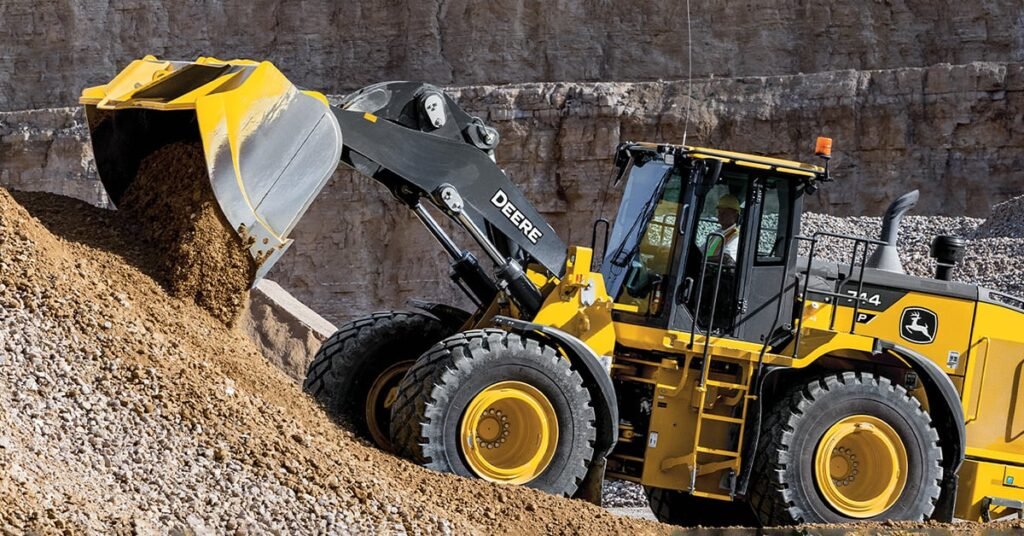
How to Assess the Quality of Used Loaders?
You need to know how to evaluate the quality of the used wheel loader you’re considering to make sure you get something that’s going to do what you need it to do.
Use maintenance records or ask the seller for them. You should get a list of all the times the loader has been serviced, all the routine maintenance that’s been done, any repairs that have been made, and any
parts that have been replaced. A well-maintained machine is more likely to be a good, reliable unit than one that’s been treated poorly. Perform a visual inspection. Look over the entire machine. Look for
wear and stress points, especially around the bucket, the hydraulic lines, and the undercarriage. Look for rust, dents, or other damage that might indicate abuse or neglect.
Operational History:
Ask some questions about what the machine was doing in its previous life. Was it used in construction (which may be harder on it) or in agriculture? What type of environment was it working in? A machine that worked in a harsher environment will be in worse condition than one that worked out in wide-open spaces.
Hours of Operation:
The fewer the hours on the machine, the less maintenance you’ll have to do and the longer life the machine will have. However, low hours don’t tell the whole story, so use this info in conjunction with your other evaluation techniques.
Test Run:
If you can, drive it. Hop in the cab and take it for aspin. How does it feel? How does it sound? Check the responsiveness ofthe controls, listen for odd sounds, and see how the whole machine feels.Some operational issues won’t show themselves unless you’re actuallyrunning the loader.

Price Factors: How to Find a Cost-Effective Loader?
Finding the right used wheel loader at the right price can be a great deal if you know how to research and negotiate.Establish a budget. This budget should include how much you have to spend on the machine as well as the other costs associated with it like repairs, maintenance, and any shipping or transportation expenses.
Having a budget is vital for you to make an educated decision and to make sure you don’t end up overspending. Do some market research. Look up prices on different makes and models of wheel loaders using platforms like Alibaba, Made-in-China, and any local classified ads in your area. Find out what people are asking, what they’re paying, and what’s realistic based on the types of machines you’re
trying to find. It’s hard to negotiate if you don’t know the market.
Negotiation:
Don’t be afraid to negotiate on price. Most sellers expect that you will, so they often have some wiggle room. Use whatever you found during your inspection and research as bargaining chips when you
go to the table. With a well-thought-out negotiation strategy, you can save a lot of money.
When to Buy: Consider timing when you make your purchase as well. Just like airline tickets, the price of a loader can vary. It changes based on demand and the time of year. If at all possible, buy when it’s the
offseason. Most people are more willing to negotiate when they’ve got six of something and could only sell four last year.
Financing:
Look at the terms some places offer on financing. Some companies will sell you a loader and let you make payments. That might be something that makes your purchase a lot easier and solves the
problem of how to afford a new piece of equipment. Total Cost of Ownership: Consider total cost of ownership, not just purchase price. What will it cost you to own and operate the loader over its expected
useful life? Operations costs, maintenance, fuel use, and what it will be worth when you decide to sell it all need to play into your decision-making process.
Why Are Certifications and Inspections Important?
Certifications and Inspections: When you buy used, the quality and certification of the equipment are critical.
Certifications:
Look for used wheel loaders that come with certifications from reputable industry organizations. These certifications can provide peace of mind when it comes to the quality, safety, and overall condition of the equipment. For example, a certification may indicate that the loader meets certain safety standards or performance criteria.Professional Inspection: Consider having a professional inspection done by a qualified technician before you buy. A knowledgeable technician can spot issues that you might not see or understand, potentially saving you from expensive problems or a regrettable purchase.
Documented:
Be sure to get all the paperwork, including warranties, inspection reports, certification papers, and so on. This paperwork protects your investment. It’s also a reference you can use when it’s time for maintenance, and it helps you establish the value of the loader when it’s time to sell.

Tips for Choosing a Reliable Supplier
Find a Good Supplier: Do your research to find a trustworthy supplier so that you can buy with confidence and minimize your risk.
Research potential suppliers:
Start by looking online. Search for different potential suppliers in your area that sell used equipment and
read reviews or find information on how long they’ve been in business, what their reputation is like, and what other people have to say. Engage with the suppliers: Call them up and ask questions about their
inventory and their business. A good supplier will be transparent and open in their responses.
Industry History:
Spend time investigating the supplier’s history in the industry. How long have they been around? A longer time often indicates that they’re more trustworthy and experienced. The older and more established suppliers have developed relationships, and they may be able to offer some sort of warranty or after-sale support. After-Sales Support: Ask about after-sales support. What happens if you have an issue? Do they help you troubleshoot it? If something goes wrong, will they help you fix it or tell you what to do? This can be a valuable service, especially if this is your first time buying a wheel loader and you’re not sure about everything.
Transparency and Honesty:
They should be open and honest about the condition of the equipment. If it’s been used, they should be willing to tell you what it’s been used for. They should be able to show you what maintenance has been done and what repairs have been made. A good supplier will not try to hide anything from you, and they should be concerned about your satisfaction.
Common Questions: How to Handle Post-Purchase Issues?
Once you buy, you could potentially run into issues: Understand the warranty and return policy.Refamiliarize yourself with any warranty or return policy the supplier has. Understanding how that works could provide peace of mind if something happens right after you buy. Troubleshoot issues.Learn how to address common issues with the loader. Join a forum specific to your make and model of loader or get involved in a user group online. There will likely be other users who have run into the same
problems you’re having.
Understand the proper maintenance practices. Follow the recommendations from the manufacturer, including service intervals and any necessary maintenance and repairs to get the longest life and
help prevent any sort of expensive breakdown. Access to parts: Be sure that you’re going to have access to replacement parts when you need them. The last thing you want to do is have your loader go down, and then have to wait two, three, four, or eight weeks for a part to show up. Develop a relationship with a supplier or a dealer where you are confident you can get what you need, when you need it.
Seek professional help: If you’ve got a big problem and you can’t figure it out, don’t be afraid to call somebody who can help. Sometimes it just takes a professional to save you time and frustration, and also to make sure that things get fixed the right way.
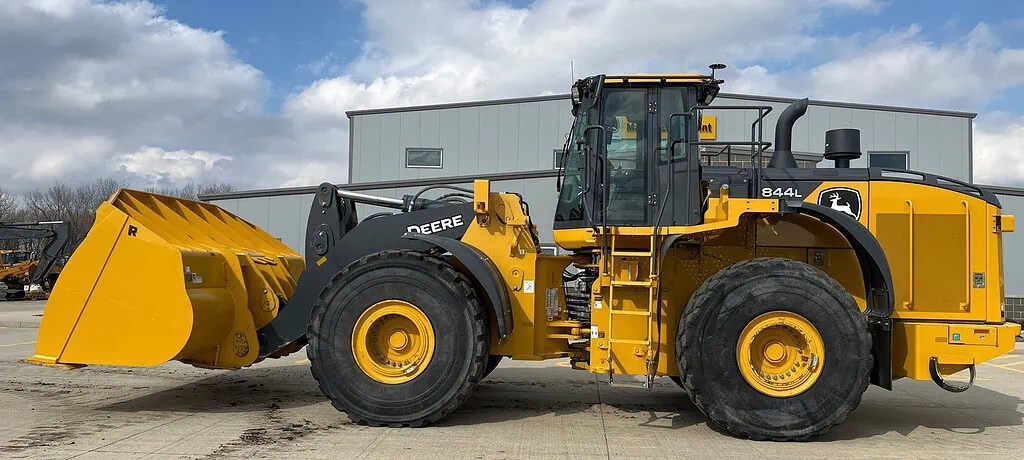
Future Trends in Used Wheel Loaders
Telematics and connectivity: Look for telematics technology to make its way into used loaders. These tools allow you to monitor the machine’s performance in real time. You can use that information to run a smarter operation and to preventatively maintain your loader.
Electric and hybrid models:
The push toward electric and hybrid loaders is in full force. Environmental regulations, customer requirements for sustainability, and technological advancements in battery and electric drive systems are driving an uptick in electric-powered and hybrid loaders.
As this trend continues, you may have the option to buy a used electric loader that dramatically reduces emissions and operating costs. Advanced safety features: Automatic braking systems, enhanced visibility, and other safety and operator-assist technologies are making their way onto new loaders. Understanding these advancements will help you find a loader equipped with features that keep your operators safe and comfortable.
Sustainable Practices:
Continued focus on sustainability will impact the market for used wheel loaders. People are going to look for loaders that meet certain environmentally friendly standards, emphasizing fuel efficiency and lower emissions. Market Platforms: The evolution of digital marketplaces will continue to impact how people buy equipment. These platforms give you access to massive inventories and let you see what other people think based on reviews and ratings.
Best Practices for Operating Used Wheel Loaders
Once you have your used wheel loader, here are some operational best practices to keep in mind.
Operator Training:
Make sure all of your operators are trained properly on the specific loader you bought. They need to know not just how to operate the controls, but how to do it safely, and do their pre-operational checks and basic maintenance. Pre-Operational Checks: Develop a process for doing an inspection on the loader every day before you start it up. It should be a daily visual inspection that includes checking fluid levels and looking at tire wear as well as making sure all the safety features of the machine are functioning
properly.
Stay within load limits:
Make sure that the operator and anyone else using the loader do not exceed the manufacturer’s load limits. Overloading puts unnecessary wear and tear on the machine, increases the likelihood of a mechanical failure, and can create safety hazards. Educate your operators about the manufacturer’s load limits and make sure they adhere to them. Proper operation: Teach operators to run the loader the way it’s meant to be run. Smooth acceleration, smooth deceleration, keeping a low center of gravity with your load, and using your bucket properly are all parts of running the loader in the right way.
Scheduled maintenance: Develop a schedule for regular maintenance based on the manufacturer’s recommendations. That includes fluid changes, filter changes, and examining hydraulic systems to make sure that your loader stays in top condition.

Financing Options: How to Make Your Purchase Affordable?
Understanding the different options where you can get financing is abig part of making it easier for you to afford a used wheel loader.
Loans and financing:
Look into financing plans that are available from the supplier where you can buy the loader and make payments or check up on getting a loan. Leasing: Look at leasing the loader instead of purchasing it outright. With a lease, you make payments to use the loader for a certain period, and it could be an attractive option if your work varies each month.
Grants and subsidies:
Some places have grants or subsidies available to assist businesses in purchasing equipment that helps improve efficiency or achieve sustainability goals. Trade-in programs: If you’re replacing an older loader, see if any suppliers are offering trade-in programs. This might allow you to offset the cost of your new loader and make it easier to complete the transaction. Shop around: Don’t be afraid to shop around for quotes on loans or financing. It’s worth your time to get several different quotes and compare them. You might be able to save yourself quite a bit of money by finding the best interest rate or best terms over the life of the loan.

What to Do If Your Loader Needs Repairs?
When that used wheel loader does break down, you need to know what to do to minimize your downtime and costs.
Identify what you need:
Watch for early signs of potential issues that might lead to necessary repairs later on. Those signs could be noises, a difference in how something works, or a visible wear point. Solving a
smaller problem today could prevent a larger problem down the line. Bring in a professional. When it’s time to repair something, don’t be afraid to call somebody who knows what they’re doing. They can help
diagnose the problem more accurately than you can, and they’ll make sure that it’s fixed right the first time.
Cost of repairs: Get multiple quotes. Don’t be afraid to shop around a little bit on the repair side of things to make sure you’re getting a fair deal, and ask about possible alternatives if the price is high. For example, if you’ve got a part that needs to be replaced, can you get a high-quality used part that will save you some money? Don’t be afraid to ask those kinds of questions to try to control the cost of your repair.
Preventative maintenance: Make sure you’re doing everything you can to prevent the need for costly repairs. There are a lot of things you can look at like routine checks and servicing. A little bit of maintenance today could prevent a very costly repair tomorrow.
Understand your warranty. If your loader is still under warranty, evaluate what is and is not covered. Some suppliers will offer warranties on used equipment, and if your repair is a covered repair, it could save you a lot of money out of pocket.
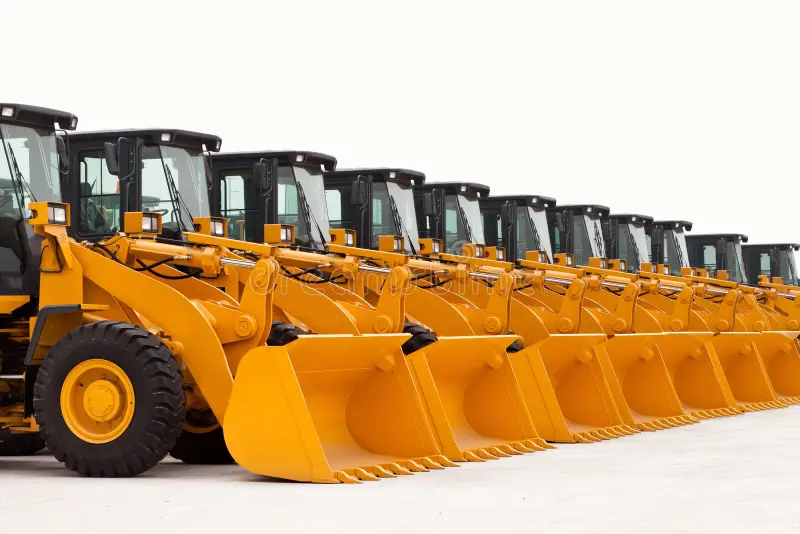
Conclusion
Finding a high-quality, low-priced used wheel loader requires some thought, research, and evaluation on your part. Hopefully, I’ve given you a good idea of how you can put yourself in a position to find a great used wheel loader that helps you operate more efficiently while keeping an eye on your costs. Good luck hunting!If you need a second hand loader, please contact me.

